Your gateway to endless inspiration
Rapier - Blog Posts
What is a Rapier?
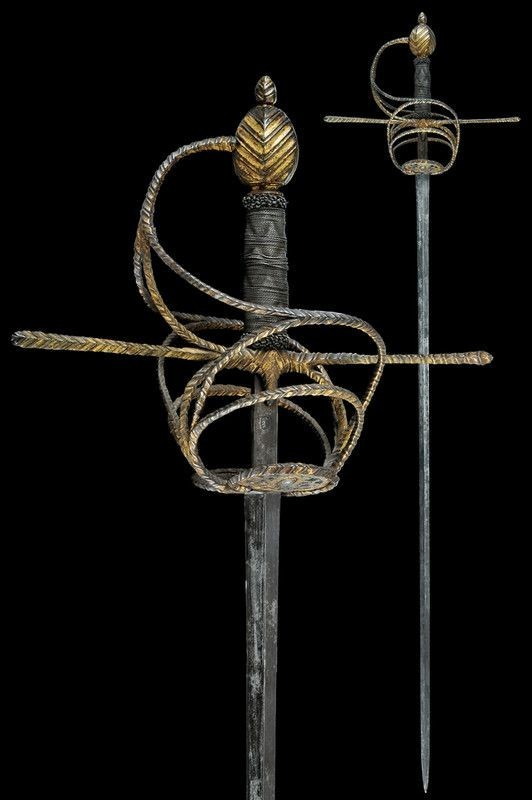
A Rapier is a one-handed, thrust-centric sword common to the Renaissance. The word first begins to be used in France in the late 15th century, referring to swords as an “Epée Rapiere,” and it continues to see common use into the mid 17th century, and even into the 18th century in countries such as Spain.
Common sub-types of Rapier include the swept hilt,
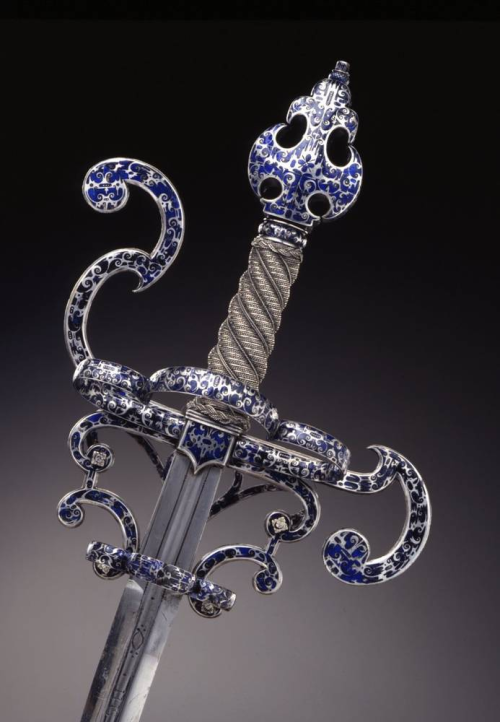
cup hilt,
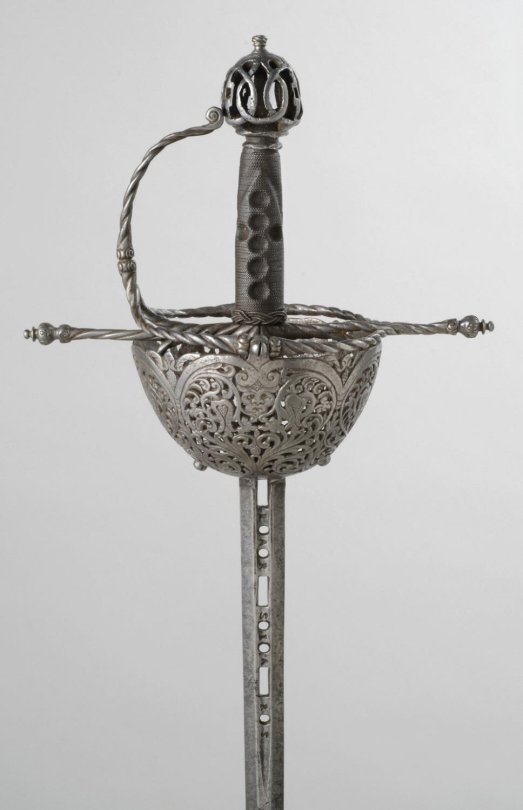
pappenheimer,
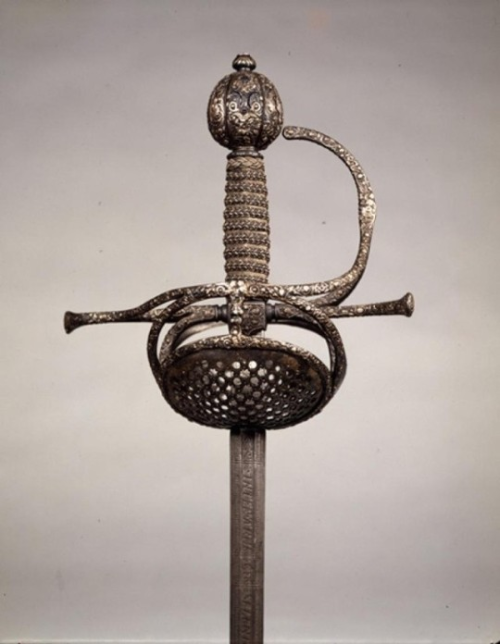
and ring hilt (also called a seven ring, or some variation thereupon,)
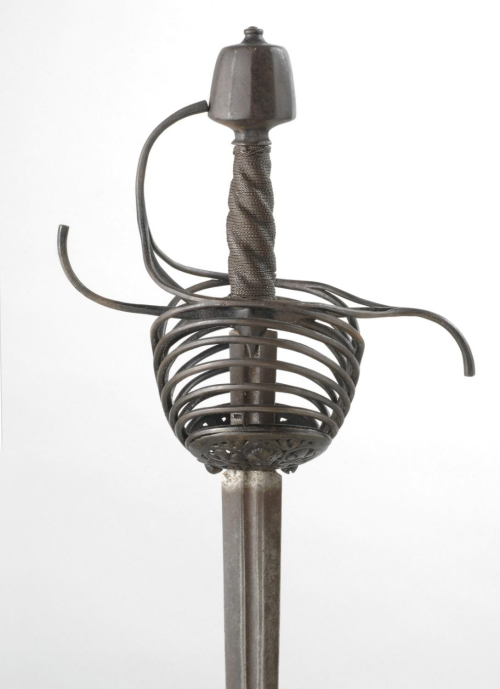
and the rapier is likely the weapon which has the most manuals written on its use. Contrary to popular belief, Rapiers are not particularly light swords, sometimes weighing as much as longswords, up to 5 lbs/2.25 kg.
-mod Armet








Rapier with Scabbard
Dated: 1575-1583
Geography: made in Dresden, Saxony, Germany, Europe
Medium: engraved steel [blade]; blackened iron, pierced and engraved silver, wood, silver wire [hilt]; pierced and engraved silver, wood, leather [scabbard]
Measurements: pommel: 2 ½ × 2 13/16 inches (6.3 × 7.1 cm); blade: 11/16 × 42 3/8 inches (1.8 × 107.6 cm); width (quillons): 9 15/16 inches (25.2 cm); depth: 5 13/16 inches (14.8 cm); scabbard: 2 ½ inches × 7/8 inches × 3 feet 2 ½ inches, 8.1 ounces (6.4 × 2.3 × 97.8 cm, 230g)
The blade of the sword was made by bladesmith Andrea Ferrara, Italian (active Belluno), active 1550 - 1583. The sword features silver mounts of rapier and scabbard probably by silversmith Wendel unter den Linden, German (active Dresden), active 1566 - 1593, died before 1610.
Source: Copyright © 2016 Philadelphia Museum of Art


